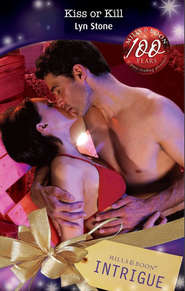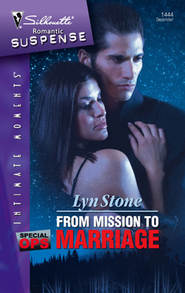По всем вопросам обращайтесь на: info@litportal.ru
(©) 2003-2025.
✖
Gifts of the Season: A Gift Most Rare / Christmas Charade / The Virtuous Widow
Настройки чтения
Размер шрифта
Высота строк
Поля
“I was speaking of ribbons, not pineapples,” said Lady Fordyce, frowning with concern. “Are you certain you are well? You are most distracted this morning.”
Sara flushed, likely the first color to come to her cheeks all day. “Forgive me, my lady,” she said hurriedly. “If I am distracted, it is only the usual happy confusion of the season.”
Skeptical, Lady Fordyce’s frown remained. “More likely it is Clarissa’s fault, fussing and worrying at you over what she’s to receive for Christmas.”
Sara only smiled wanly. If she looked only half as exhausted as she felt, then she was fortunate Lady Fordyce hadn’t sent her directly to bed and summoned the surgeon.
But how could Sara look otherwise, considering the miserable, sleepless night she’d spent after leaving Revell on the terrace? She’d truly believed she’d purged him forever from her thoughts and heart, yet the moment he’d smiled at her and begun talking of Calcutta, she’d once again felt that familiar warmth of joy and excitement begin to swirl through her body, the rare happiness that Revell alone had given her, and she’d realized how hopelessly weak—weak!—she still was.
In six long years she hadn’t learned one blessed thing, not where Revell Claremont was concerned. She might as well be done with it now: throw herself into his arms directly, and beg him to trample on her heart and abandon her again.
“I trust you would confide in me if something were truly wrong, my dear, wouldn’t you?” asked Lady Fordyce gently, settling the pineapple back into the basket on her desk so she could rest her hand on Sara’s shoulder. “You would tell me if there was a matter I could remedy?”
Oh, yes, thought Sara unhappily, of course she’d confide in Lady Fordyce. Governesses for young ladies were supposed to possess unblemished and virginal reputations. She’d never told the Fordyces that she’d spent most of her life in India, or that she’d been forced to leave in a rush of disgrace, let alone spoken of her unfortunate entanglement with Lord Revell Claremont. How could she, when any part of her sorry tale could cost her her place—a place she couldn’t afford to lose—even with a kindhearted mistress like Lady Fordyce?
“If there were any ills you could remedy, my lady,” she said with careful truth, “then I should always come to you.”
Lady Fordyce beamed, and gave Sara’s shoulder a fond little pat. “I am delighted to hear it. Ladysmith has always been a happy house, free of secrets and intrigue, and I would like to keep it so. Now, Christmas or not, surely it must be time to begin Clarissa’s lessons today?”
With a swift curtsy Sara hurried from the room, down the hall toward the library. She’d already decided that her lesson today would feature Hannibal’s ancient journey across the Alps, and she hoped to find a book with illustrations to pique Clarissa’s interest enough to make her forget the coming holiday, at least for a moment or two, and make her stop daydreaming of Rev Claremont.
With fresh determination she marched into the library. A small fire glowed in the hearth to take the chill from the room for any guests who might venture into it, but Sara was sure she’d have the collection to herself. She certainly wouldn’t see Albert Fordyce, or Sir David, either. The current generations of Fordyces were not readers and neither were the majority of their friends and houseguests, and often weeks would pass when no one beyond Sara entered this pleasantly crowded room with the tall bookcases and old-fashioned chairs. Carefully she now pulled a large book of Roman history from the shelf and opened it on the leather-topped table in the center of the room, flipping through the heavy pages filled with text to find the illustrations. At last she came to one she sought, the Carthaginian general Hannibal leading his elephant-borne troops across the Alps, and she leaned closer to study the details of the print.
“Miss Blake,” said Revell, his broad shoulders suddenly filling the doorway to the library. He cleared his throat, low, rumbling, and thoroughly self-consciously, as if he needed one more way to announce his arrival. “Good morning, Miss Blake. I did not expect to find you here.”
“Nor I you, my lord.” Startled though she was, she was resolved to be cool and reserved, a model governess with her hands clasped neatly at her waist. Besides, this time they were in the library, and there wasn’t a single moonbeam in sight to addle her wits or to give him unfair advantage.
Not that he needed any. To her dismay he was every bit as handsome here in the bright morning sun as he’d been by the enchanting moon.
“You shouldn’t be surprised at all to find me here,” he said, leaning one arm against the frame of the door. “Unless you, too, have chosen to believe whatever drivel you hear said, particlarly about me carousing until all hours of the night with most mythical stamina.”
“I’m hardly in the position to hear fashionable gossip, my lord,” said Sara, striving to sound aloof rather than merely prim. Being a governess and therefore largely invisible, she had, of course, overheard a great deal about the infamous Lord Revell, none of which she wished to repeat to him now. “The only rumors I’m likely to hear in the schoolroom regard new kittens in the stable, or what special pudding is planned for supper.”
“It’s nothing more than the usual nonsense.” He sighed mightily. “Because I lived so long abroad, I am deemed a restless wanderer and no longer quite English. Because I chose to learn the languages of the men with whom I conducted business, I have become somehow wicked and untrustworthy. Because I took care to defend myself against bandits and thugs, I have in turn become as dangerous as they. But then you know how suspicious Englishmen can be of anything that they do not immediately understand, don’t you?”
Tugging on the cuffs of his shirt, he smiled so wryly it was almost a wince, and to her amazement she realized that this lengthy explanation was really a sign that he was as nervous as she. He must be sure he was rambling, babbling on like this, and cursing himself in silent misery, but she found it…endearing.
“People will always see what they wish in others,” she said softly, knowing that sad truth from her own experience. “Especially if what they imagine is more exciting than the truth.”
“Exactly,” declared Revell. “Which is why Albert Fordyce fully expects me to go racing about the countryside on one of his skittish overbred nags, laying a breakneck siege to every squire’s equally skittish, red-faced daughter in the county simply for the sport of it.”
“You wouldn’t?” she asked, unable to keep from teasing him in the face of such indignation. “You disappoint me, my lord.”
“Well, yes, I disappoint everyone, don’t I?” he said as he finally came to stand beside her at the table. “Don’t you remember how it was your father’s library that drew me to your house in the first place?”
She did. Her father’s library had been her favorite place in their house and she had spent endless hours curled in a tall-backed wicker chair near the window to catch any breeze while she read and dreamed of the impossibly distant fairy-tale lands of France and England.
She’d been sitting in that same chair when she’d first seen Revell coming through the doorway with her father. She had not wanted to be interrupted, and had tried to hide, pressing herself more tightly into the chair’s curving back and holding her breath to sit perfectly still.
But Revell had spotted her anyway and sought her out, and as soon as he smiled, she’d forgotten instantly about hiding. She’d never seen a more handsome British gentleman in Calcutta, and she’d been as dazzled as every other female in Calcutta by that smile. But it wasn’t until later that afternoon, after they’d quarreled—so violently that her father had scolded her for being inhospitable—over the symbolism in Voltaire’s Candide, that she’d realized that she would love Revell Claremont, too. He had been as fascinated by her bookish wit as by her newly blossoming body, while she had found the handsome gentleman who was equally accomplished at kissing and listening irresistible.
But while the library might bring back bittersweet memories, hearing Revell mention her father only robbed Sara of her composure, forcing her once again to consider Hannibal to hide her confusion and uneasiness. Her poor father’s death had changed everything. If only the circumstances around it had been less clouded, then she wouldn’t have had to leave Calcutta so hastily, or change her name, or become a governess to keep herself from starving. But how much of this sad truth did Revell know, and how much would he forgive?
“Did you know I bought your father’s copy of Candide at the auction of his things?” Revell continued, running his fingers along the leather binding of the open book on the table before them. “The one you’d left in the garden, where the dew had dappled the cover? By the time of the auction, you were already gone, of course, but still I wanted something to remind me of the days we’d shared.”
“You came back to Calcutta in time for the sale?” she asked, stunned. “But you couldn’t have, not when they told me that you—”
“Here you are, Miss Blake!” exclaimed Clarissa, the holiday-red ribbons in her hair bobbing as she skipped into the library. “Mama said I should find you here, and I—oh, Lord Revell, why are you here, too?”
“And a fine good day to you, too, Miss Clarissa,” said Revell, deftly covering Sara’s confusion. “As you can see, I am helping Miss Blake prepare your lessons for today.”
Clarissa’s cheerfulness vanished, and she heaved a dutiful sigh that must have begun at the tips of her slippers; clearly she’d been hoping for an explanation with more interesting possibilities. “What sort of lesson, my lord?”
“We shall be continuing to speak of ancient generals, Clarissa,” said Sara quickly. “I’ve found a picture here in one of your father’s books to show you how Hannibal used elephants to cross the Alps to reach Rome.”
“Truly?” asked Clarissa with more interest as she crowded next to Sara to look at the open book. “I do like elephants, with their funny long noses.”
“It’s a pity the artist hadn’t the slightest notion of how an elephant should be ridden, however,” said Revell critically, also crowding next to Sara on her other side, and effectively trapping her between the little girl and himself.
Although he continued looking down at the illustration instead of her, he let his hand brush against hers, doing it as if by accident so she couldn’t shift away without making a scene. Carefully he pretended to trace the line of the elephant’s trunk with one finger, but Sara knew better. Even that slight touch was enough to send a shiver of sensation racing up her arm, a shiver she most decidedly did not wish to feel.
“This poor fellow here might as well be perched at the top of a sliding board, sitting on the elephant’s neck like that,” he continued, frowning a bit to prove the seriousness of his commentary. “He’d be tossed off, head over heels, and bouncing down the mountainside before he knew it.”
“He would?” asked Clarissa, her eyes round with horrified fascination. “All the way down to the bottom?”
“All the way,” said Revell solemnly. “In less time than it takes to tell. And oh, how that old elephant would laugh!”
“Artists often make such errors, my lord,” said Sara hurriedly. Heaven only knew what Revell would say next if she left him unchecked, and he wouldn’t be the one who’d have to deal with nightmares tonight. “Artists often must instead rely upon the reports of others because they cannot see everything they must portray. They can’t really be faulted if the results are sometimes questionable.”
“Questionable?” repeated Revell, his brows raised with exaggerated wonder. “I’d say the results were deuced peculiar, and so would you, Miss Blake, if you dared be honest. You know perfectly well what a proper elephant should look like.”
“I also know what a proper one smells like,” countered Sara warmly, “not that that is particularly relevant to this discussion.”
“Why not, Miss Blake?” asked Clarissa, leaning her cheek on her elbow. “If elephants don’t smell nice, then why would Hannibal wish to take them all the way to Rome?”
“Because they are very large and strong and have great endurance,” said Sara, eager to move on from the question of elephantine aroma. “They would be exceptionally useful to any army.”
“Your Miss Blake is quite the expert on elephants,” said Revell, beaming dangerously at Sara. “I doubt there’s another governess in Sussex—no, all of England!—that has so much experience with the creatures.”
“Miss Blake?” asked Clarissa, simultaneously enormously impressed yet uncertain as to whether she should believe Revell or not. “However would she have any experience with elephants?”
“Because I learn through reading,” said Sara quickly, before Revell could offer any additional helpful insight. Blast him for teasing her this way! Didn’t he realize the kind of trouble he was making for her? “One can learn everything about anything through books.”
But Clarissa was paying much closer attention to the elephants than to the wisdom to be gained through reading.
“We should put elephants in Mama’s greenery,” she said, grinning up at Revell. “Miss Blake and I have been charged with making the greenery in the ballroom more festive for Mama. It’s our special task. We were going to make camels for the three kings, but now I think they should have elephants instead.”
“Oh, Clarissa, I do not believe that is the wisest idea,” said Sara doubtfully. Lady Fordyce’s tastes were exceptionally traditional, and likely she would not be pleased to find elephants—even elephants cut from white pasteboard and daubed with colored inks—parading over her mantels and sideboards between the silver candlesticks, through boughs of holly and boxwood.











